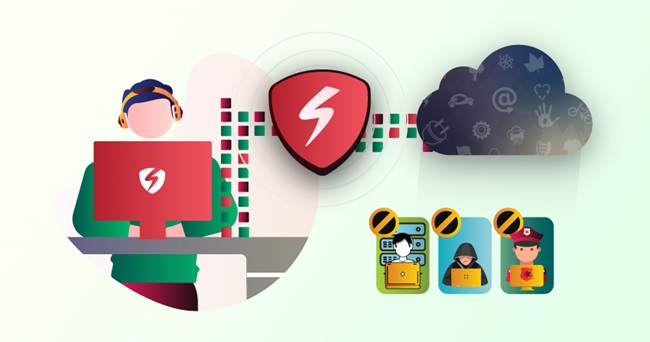
VPN for Dummies: Easy Guide for 2025
- October 19, 2021
- 12 minutes Read
- VPN Service
To the greenhorn, the word “VPN” may sound quite ambiguous and technically bizarre. Many a novice would opt to evade it instead of getting enmeshed in the whole gamut of the onerous cerebral task of wrestling with the technical jargon to decipher the comprehensive meaning of VPN.
Notwithstanding, the word “VPN” sounds humongous, but the meaning is quite simple and easy to understand. This article will particularly be useful to beginners and the uninitiated as we set out to explain in its most rudimentary and simplified form, the meaning of VPN and all that it has to do with the acronym. Therefore, you’ll come across this article:
- The meaning of VPN
- How VPNs work
- When Do You Need VPN
- Which Devices Support the Use of VPN
- The Difference Between VPN and Proxy
- The Difference Between Free and Paid VPN
- Factors to Consider Before Choosing a VPN Service
- Conclusion
The Meaning of VPN
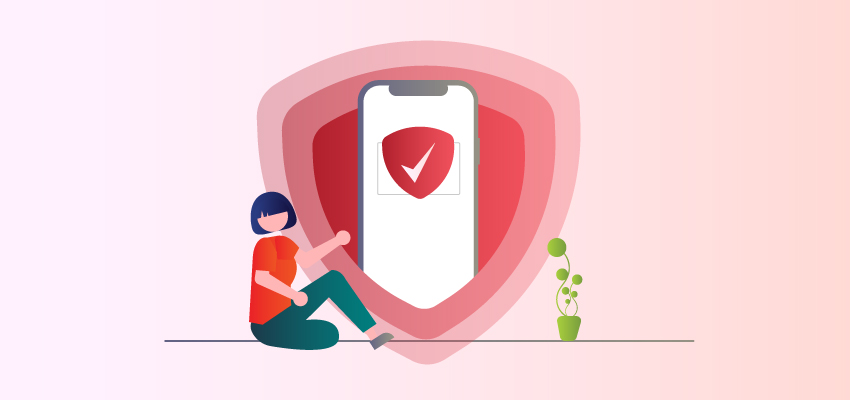
As a preamble, the idea of VPN came when the need arose for people to use computer systems from a far distance and still make it look as if they’re operating from the parent network using the same credentials. This means, you’re trying to create a network in cyberspace, which is not connected physically to one another, but virtually, which means it’s a remote connection.
The main emphasis is ‘’private”. This implies that whatever goes on in the course of this ‘magical’ connection, should be personal, hidden, and strictly private. Therefore, it logically explains itself as a remote or virtual network that is private.
To this extent, you, as a VPN user, operate in an online space in which activities are only known to you without other people having access. It is similar to you having a small private internet which belongs to only you. Virtual Private Network or VPN in short term is a security technology meant to protect and encrypt your connections.
VPN creates a secured and private tunnel between two devices, just as the water flows through the pipe, from one end to another, without being noticed. This allows you to surf the internet securely and privately, enabling you to enjoy private internet access. VPN creates an encrypted connection between your device and a VPN server, thereby securing your online activities and enhancing your privacy.
As a beginner, you would have probably heard that, by default, the internet is vulnerable. You should have also heard some people complain that their Facebook, Instagram, and other social media accounts have been hacked. The aim of such mischief by cybercriminals is not to patronize their victims but to take advantage of their private information, such as bank account details, credit, and debit card details, and other personal profiles, with the aim of stealing their money.
It does not end there. Sometimes, the government may decide to spy on the online activities of citizens. Even internet service providers(ISPs), may try to sell your browsing data to advertisers. But if you turn on your VPN app on your computer or any other device, your data will be protected. VPN protects your data by hiding all your online activities in a tunnel. When this is done, nobody will be able to see what you do.
This way, your data is secured. Like the water flowing inside a pipe, everybody knows that it is flowing, but nobody can see the content. In the same vein, your ISP and hackers know that you’re connected to the internet, but they cannot see your online activities. A VPN tunnel ensures your privacy by turning your data into encryptions or unreadable scrambles, which become blurring in the eyes of intruders.
How VPN Works
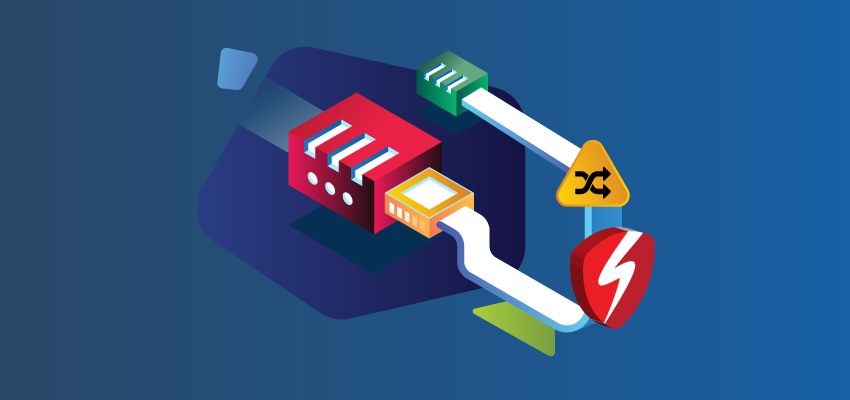
VPN creates a secure passage between your device and the internet. Every data you key into your device is encrypted and sent through your internet service provider(ISP)to a remote server owned by the VPN company. At this point, they’re decrypted and sent to the internet. Data coming back also adopt the same pattern.
This means that even if they compromise the network you’re connected to, and it happens that somebody is monitoring the data you send and receive, the intruders will only see a flux of scrambled letters and numbers known in cyber security parlance as ciphertext.
Having said these, you may ask,
’’what’s the major distinction between VPN connection and normal internet connection”?
Some of these distinctions are:
i. With VPN, every information is encrypted at the point it originated, that is, your computer or device, and is duly decrypted once it gets to the server, which is controlled by the VPN company.
ii. Your real IP address is veiled by the IP address of the VPN server.
iii. Your ISP server is blocked from sighting the websites you visit.
iv. When you use VPN, it may cause the internet speed to slow down due to the time it takes to encrypt and decrypt data.
This can also be affected by the speed of the VPN server. In the main, the speed of the VPN can be determined by the quality of the server, the number of people connected to the server, the configuration, and also the distance between where you are and where the server is.
Again, if the speed goes down, it can hardly be noticed if you choose a high-performing VPN with a thunderbolt speed like Symlex VPN. You can use VPN to change your apparent location by switching to the IP address of the VPN server which can be situated anywhere in the world.
You can use your VPN to change your IP address to the one in the location or country where the content you want to stream is not blocked and you’ll continue to enjoy unrestricted streaming.
When Do You Need VPN?
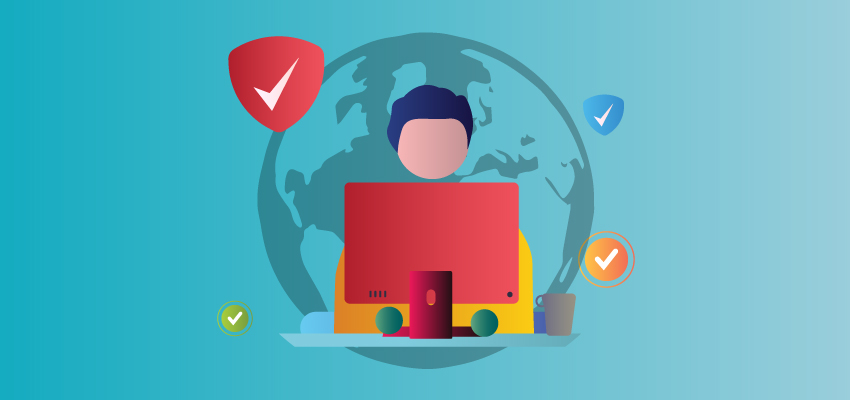
i. When you want to stream content that is restricted from your country
There are some video content or TV series that are either restricted or not available to watch in your country probably because of copyright regulations. But this can only affect those who don’t have VPN. With VPN, you can stay in your country and connect to a server in any country of your choice. This will make it appear as if you were in that country physically.
ii. When you want to use public Wi-Fi without qualms
Many a time, you feel excited when you hook on to public Wi-Fi with the mindset to enjoy free surfing at the airport, public libraries, shopping malls, and others. Such places are vulnerable for browsing as cybercriminals and snoopers are always stationed there to pry and steal private information from hapless and unsuspecting users. With VPN, your online activities on the public Wi-Fi are protected.
iii. When you want to save money online
If you’re an online shopper, you will notice that some websites offer different prices to customers from different countries. You can hide the location from which you’re shopping with a VPN, hook on to the server of the country where they offer the price that appeals to you, and it will appear as if you’re shopping from that country.
iv. When you want to bypass government censorship of online activities in your country of residence
The government may decide to clamp down on online activities of some social media or alternatively censure such activities by directing ISPs to submit the data and private details of internet users and allow access to government-approved sites only.
Good VPNs like Symlex VPN have servers that are designed to bypass such regulations and give you access to stream banned content or sites even when you travel. For instance, the government of Nigeria recently banned the use of Twitter. But those who have VPN on their devices still make use of Twitter through the abovementioned process.
v. When you want strict privacy for your data
When you use VPN, be assured that no one can see your online activities. This is the only way to guarantee complete privacy.
For those looking for a reliable option, check out our recommended VPN for Chrome users to enhance your browsing security and privacy effortlessly.
Which Devices Support the Use of VPN?
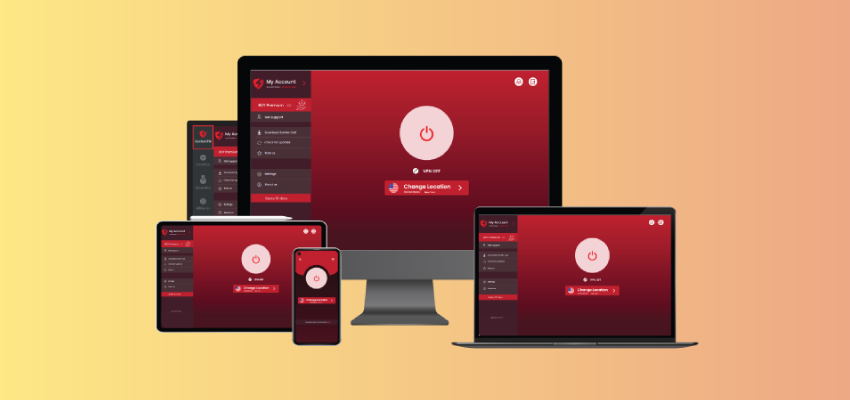
Many known VPNs have apps for Windows, macOS, Linux, Android, and iOS. With a VPN router, you can also connect all devices to VPN. A VPN router enables you to choose which devices to connect to VPN and the ones to connect to the internet.
The Difference Between VPN and Proxy
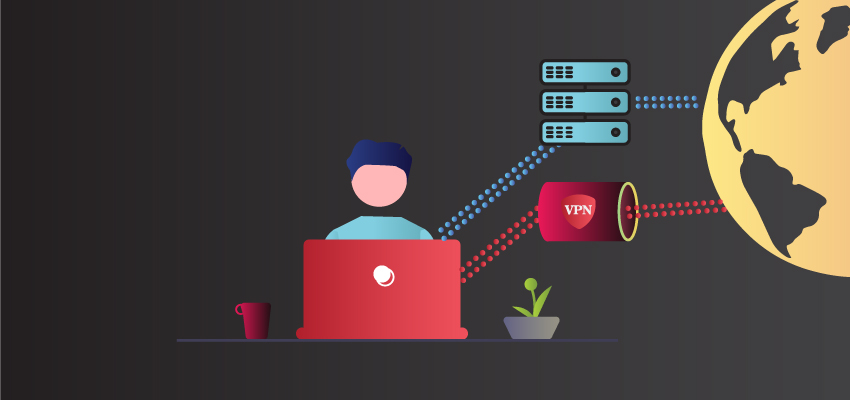
Proxy is one of the concepts in cyber technology. VPN can do everything Proxy can do, but Proxy cannot do everything VPN does. Like VPN, a Proxy can hide your IP address and jumps over geographical restrictions.
IP is the acronym for internet protocol. It contains information about you which is supposed to be private to you. But if this is made public, hackers can use this information to take advantage of you. Proxy comes in handy, especially when you want to watch contents which are not allowed in your region such as YouTube, Netflix, etc.
But while VPN can encrypt your online traffic, Proxy cannot, thereby making it accessible to hackers, ISPs, and even authorities. With Proxy, your online traffic is visible to your ISP and those who own the server. Many VPNs maintain a no-logs policy which ensures that there will be no trace or left-over of what you’ve done online. This makes your online business strictly private.
The Difference Between Free and Paid VPN
Basically, you’ll not expect complete satisfaction from anything that is offered for free. Therefore, a paid VPN will inexorably perform better than a free VPN. VPN servers are run with money and are very expensive. So you’ll begin to wonder how free VPNs cover the cost of maintenance and provision of service.
The truth is that many free VPNs exploit their customers to whom they claim to offer ‘’free” services in order to recover costs. This means these customers become the product itself being sold. Free VPNs make money by selling access to your computer and network to third parties.
They can also monitor your area of interest and sell it to third parties. The latter will use it to inundate you with ads. We advise you to avoid the so-called free VPNs and go for paid VPN.
Before you make a purchase, check out these essential tips for buying a VPN to ensure you choose the best option for your needs.
Factors to Consider Before Choosing a VPN Service
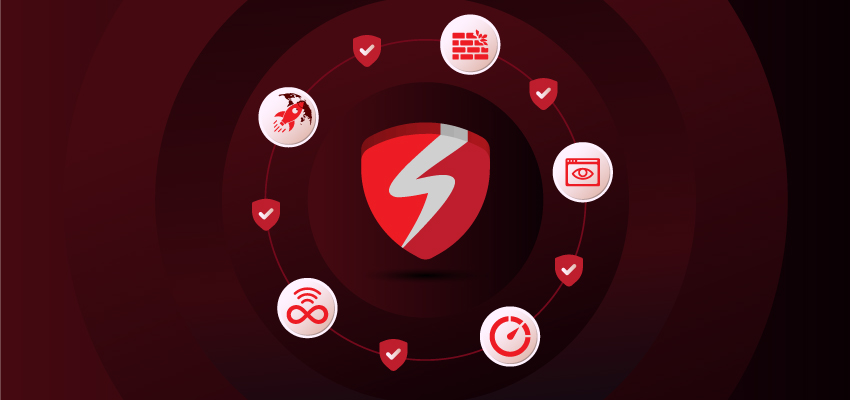
i. Location and area of jurisdiction
You need to find out the law that controls the use of VPN in the country of your choice. There are some countries that compel VPN providers to log information about their users.
ii. Security
There are different ways a VPN can encrypt your data. This is known as the VPN protocol. There are different types of VPN protocols, some of which are highly reliable.
These include:
OpenVPN, L2TP|IPsec, PPTP, SSTP, IKEv2.
Among all, OpenVPN is the best because it provides all the features of high-level protection such as speed, is device-friendly, plus being open source. This means users are free to verify.
IKEV2 is also recommended because of its high connectivity.
iii. Logging Policies
You should also look for a VPN that insists on a no-log policy. Logging policy is very critical for VPNs as this is the main thrust of privacy. This determines whether the company stores your data and what they do with the information. As we mentioned before, free VPNs don’t really care about your privacy and therefore have no regard for the logging policy.
iv. VPNs that defend their users when faced with a legal challenge
The government of some countries has been found to force some VPN companies to provide the identity of some of their users who come at crossroads with the law. The real test of loyalty is when such VPN companies refuse to disclose such information. So go for a VPN that can stand by you against all odds.
v. Number of servers and location
The number of servers and their location determine the speed and the quality of speed offered by VPNs. The more there are many servers spread across many geo areas, the higher the quality of speed and efficiency.
vi. Kill switch
This is a necessary safety device that ensures that access to the internet is cut off if there is a failure in the VPN connection. Kill switch will stop your IP address from being disclosed and also prevent loose data from getting out of the machine. The good news is that almost all VPNs have kill switches.
vii. Multi-hop
This feature, though not really indispensable, still serves a good purpose. Multi-hop, also known as double VPN, is a feature in which a connection is made in a way that encryption is applied multiple times through multiple VPN servers. This ensures more privacy as it will minimize VPN vulnerabilities.
viii. User-friendly and support
Good VPN providers offer support to their customers through 24|7 online live chats, emailing, and other customer services. These kinds of support make the use of VPN easy.
ix. Good payment options
A typical VPN service that has privacy as its watchword should be able to provide various means of payment for users. Users who engage in sensitive jobs like journalists and whistleblowers should be able to make payments through unconventional means, like Bitcoin, for security reasons.
Conclusion
At this point, it could be safe to say that the concept of VPN has been demystified. It is believed that an in-depth understanding of what VPN is all about has been achieved. The fact, however is that as long as privacy and security remain the hallmark of internet exploration, the use of VPN is unarguably indispensable. When exploring VPN options, it’s essential to beware of fake VPN apps that may compromise your security. Learn more about how to identify them in our detailed guide.

![Ultimate White Label VPN Business Guide 2026 [Cost & ROI]](https://symlexvpn.com/wp-content/uploads/2026/01/Ultimate-White-Label-VPN-Business-Guide-2025-Cost-ROI_2-376x114.webp)




